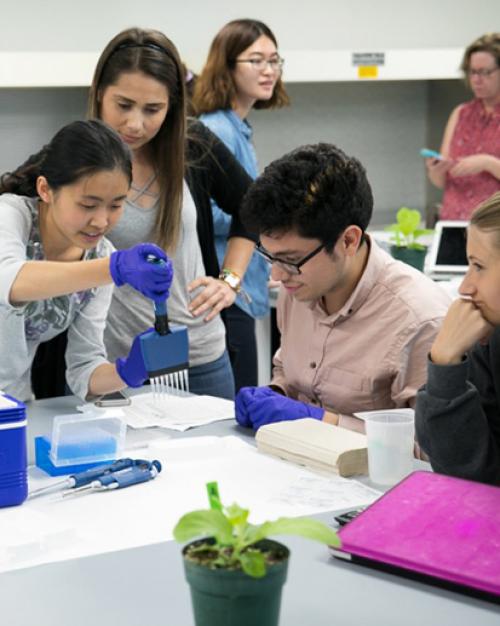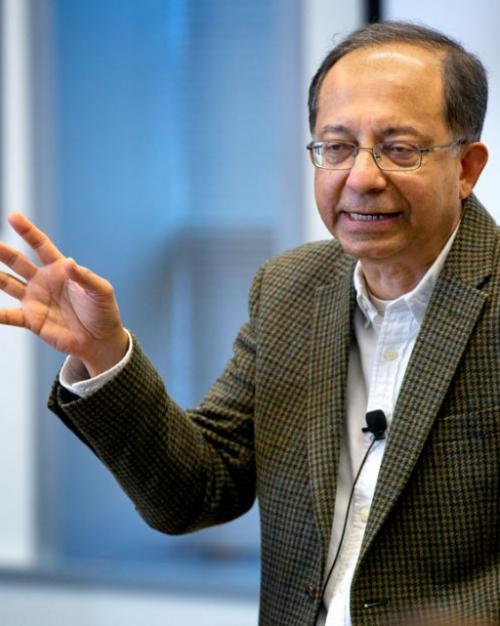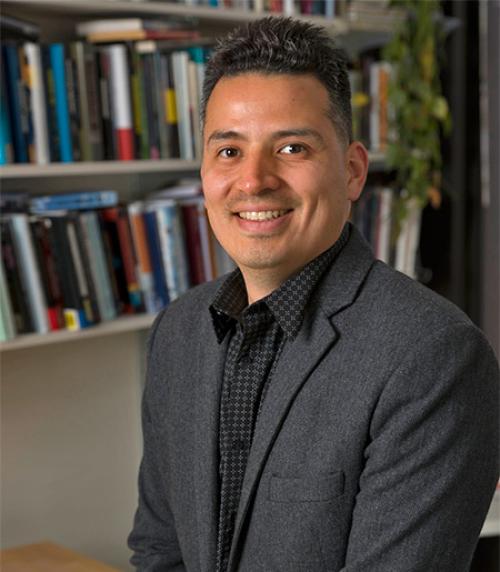Short-term relief from deportation can have beneficial effects for immigrants – but it doesn’t solve all their problems.
That was one of many conclusions four Cornell social scientists outlined April 12 in King-Shaw Hall as they described three years of research examining how having temporary protected status (TPS) shapes immigrants’ experiences at work and school. The lecture was the capstone event for the Institute for the Social Sciences’ Deportation Relief project, which brought together five interdisciplinary scholars from 2015 to 2018 as faculty fellows.
“There are a lot of really thorny and complex conceptual, legal and methodological issues that impact all these questions we’re trying to ask. And the solution to these problems has to be multidisciplinary,” said Matthew Hall, associate professor of policy analysis and management, who co-led the project with Shannon Gleeson, associate professor of labor relations, law and history.
The faculty fellows have published extensively on the thematic and methodological concerns of immigration reform.
Most previous research in this area has focused on undocumented status, but other temporary statuses are often overlooked, Gleeson said. That includes TPS, the status that most non-guest worker immigrants with temporary immigration status have. The U.S. government awards TPS to nationals from some countries affected by armed conflict or natural disaster, allowing them to live and work in the United States, usually for anywhere from 6 to 18 months. TPS is held by 437,000 foreign nationals from 10 countries, mostly from Central America and Haiti, according to a January 2018 Congressional Research Service report. “We wanted to understand what the particular sets of opportunities and challenges were that this community of students and workers were facing,” Gleeson said.
The team grappled with the fact that data is hard to come by, Hall said. Federal data and the immigration status of immigrants is virtually impossible to access, and the U.S. Census Bureau estimates it misses between 15 and 25 percent of the undocumented population. Unsurprisingly, the most vulnerable migrants are mostly likely to be excluded from the data. “The people who have the most to lose are less likely to engage with officials from the government – or with academics,” Hall said.
To address these methodological concerns, Hall and faculty fellow Jordan Matsudaira, professor of policy analysis and management, relied on innovative statistical approaches. This included using information on communities that launched programs designed to reduce the size of their immigrant and unauthorized populations.
Kati Griffith, associate professor of labor and employment law, described a project she and Gleeson worked on, looking at how low-wage workers’ immigration status affected how they perceived their working conditions and their ability to contest workplace abuses.
They found TPS does offer low-wage workers some improvements in their work situations, compared to undocumented workers. For example, it allows for a driver’s license and certain job certifications, which can lead to better work.
However, it does not erase the precariousness of the low-wage workplace. “A very clear trend in these interviews is wage theft,” Griffith said. “Another is injuries. Some were acute, like losing fingers in construction or breaking bones.” Workers also dealt with sexual and racial harassment, and the sense that complaints were futile – and could even cause them to lose their jobs. Moreover, TPS comes with a cumbersome administrative process, and fear of immediate deportation should TPS be terminated. “This affects their whole lives, not just their work lives,” Griffith said.
In another project, Steven Alvarado, assistant professor of sociology, Hall and graduate student Alex Currit examined how TPS shapes the educational outcomes of child immigrants. They took advantage of a natural experiment: an earthquake in El Salvador in January 2001, which prompted the U.S. to offer TPS to El Salvadoran immigrants. The team looked at data on children who came to the U.S. before 2001, and those who came after. “You had this exogenous shock, this hand-of-God experience … that is creating a similar population that is either eligible or not for TPS,” Alvarado said.
They also looked at differences among siblings in mixed-status families. The data included a high prevalence of families composed of kids who came to the U.S. undocumented, and subsequent younger siblings who were born in the U.S. and are U.S. citizens.
They found TPS does reduce dropout rates, and children from poor and less-educated families benefited most. “Extending these provisional documented statuses to undocumented kids has a beneficial effect on these educational outcomes that are realized even before students are graduating from high school,” Alvarado said.
This article also appeared in the Cornell Chronicle.




